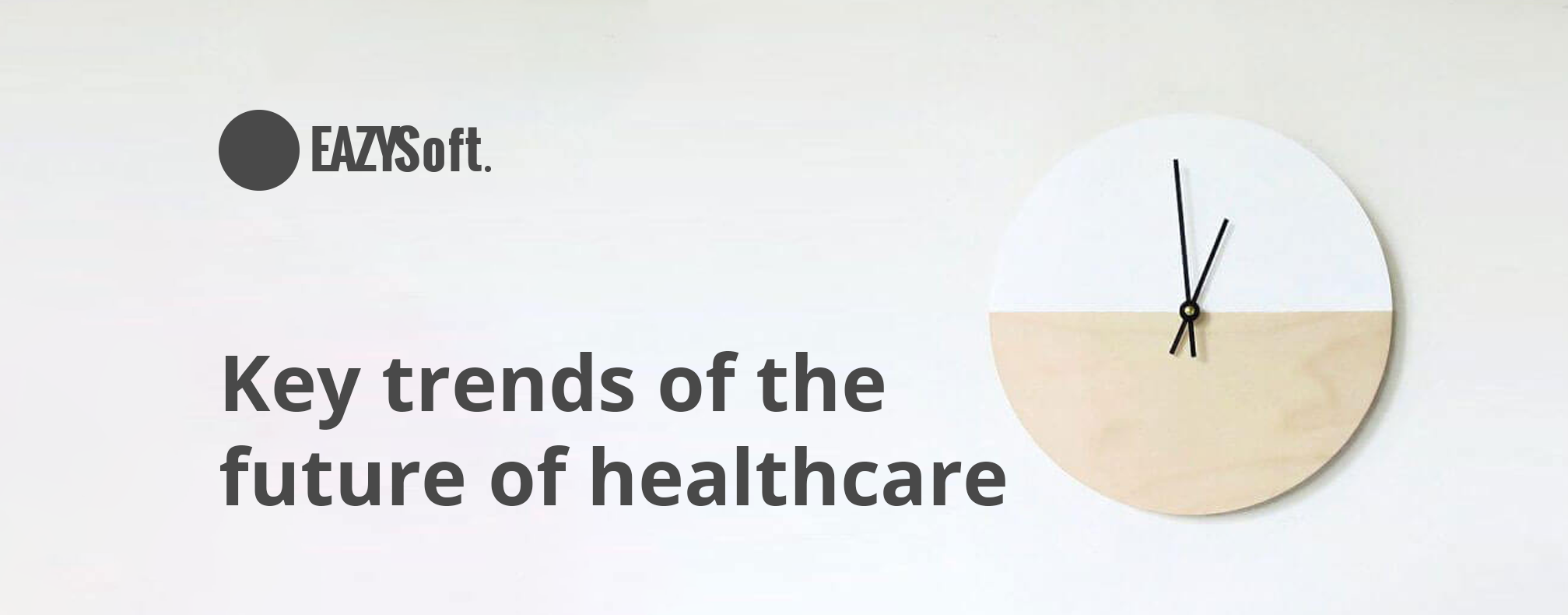
Main trends for the future of healthcare
Consumers today are more demanding than ever before. Not only do they want to be in control, they want options tailored specifically to their needs. And in most arenas they get what they want: their shoes, fitness regimes, banking solutions and even their burgers are made just for them. But the health industry has lagged, until now.
Thanks to a focus on personalized data, real-time information and blockchain technology; healthcare is finally getting a reboot. And the implications are significant. Not only is it better for patient outcomes, it democratizes health and creates greater efficiencies and scalability. Here are some of the trends we can expect to see.
5 key trends for the future of healthcare
Health care will go from general to personal
The “Internet of Things” will connect devices that can support predictive medicine and products that link a patient’s wellness to her lifestyle will go from luxury to necessity.
As data becomes more accessible and devices smarter, entrepreneurs are uniquely positioned to connect this new technology to the patient experience.
So focus on building a good base of knowledge around data, analytics and tech. Invest in data to get ahead of the curve.
Robots will become like friends
Companion robots are like smart pets. They can move around a room, you can talk to them and they will respond, and that’s important. A large part of the problem of older people living alone is the psychological aspect.
Such robots can be programmed to carry out simple tasks. You can ask them, “have you seen my glasses?” or “where is the remote?” and they can find it. But they’re also aware of what you’re doing, and can be a conduit to the outside world that can alert someone if something happens to you.
This robot can move around the house, adjust its height, it can take a cup of coffee from one room into another, it can remind you to take your medication and bring it to you from another room.
Doctors and patients are connected
Patients will still need specialists with expert knowledge, but the patient and specialist don’t need to be in the same space at the same time. A network of connected care means several experts can look at the case simultaneously. This would enable the early diagnosis of health issues by constant monitoring before they become more serious.
This will be normal practice within 10 years. The idea of maintaining people’s wellbeing rather than reacting to an episode makes sense. It will be hard changing a system that is hard-wired to be more reactive, but that’s how it will be in the future.
New therapies, new questions
Consider the field of immune-oncology – a promising strand of cancer research that coaxes the body’s own immune system to fight the disease. Unlike traditional approaches such as radiation therapy and chemotherapy, which kill healthy cells along with cancerous ones, immunotherapies target cancer cells by enhancing the body’s own innate ability to fight off rogue invaders.
Immunotherapies have produced remarkable results in many, but not all, patients. The challenge of immuno-oncology is how each discovery unlocks new questions. The future fight against cancer will rest on understanding why some tumor cells may begin to resist these therapies, and developing novel treatment combinations that are based on the unique characteristics of tumors and individual patients. Finding answers to such complex quandaries requires true collaboration, which is why Pfizer is relentless in our pursuit to advance cancer therapy by cultivating the right partnerships.
Wearable digital devices will save lives
Wearable devices can generate real-time data about patients and allow them to report their own subjective symptoms more accurately. With the growth of wearable technology and remote monitoring, in addition to conventional patient records, there will be greater emphasis on gathering and analysing large amounts of data. This will support more personalised medicine where treatment will be individually tailored to the patient.
These are very exciting times for research into cardiovascular disease.
To sum it up, everyone knows someone living with cancer, heart disease, lung disease, diabetes or a similarly debilitating illness. The good news is, research is progressing quickly on all these fronts. It’s needed just to wait a little. In few years healthcare industry will revolutionize and change people’s lives.
